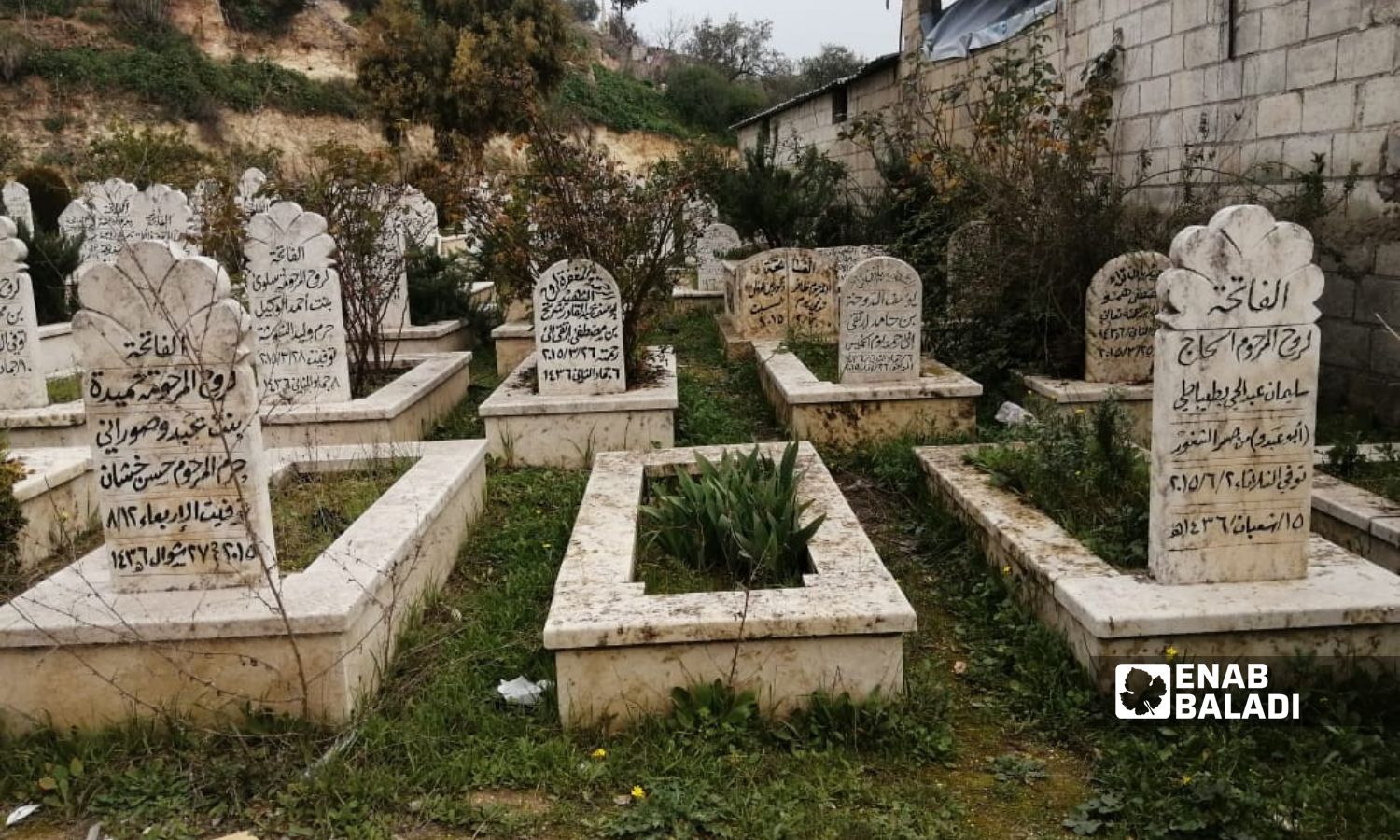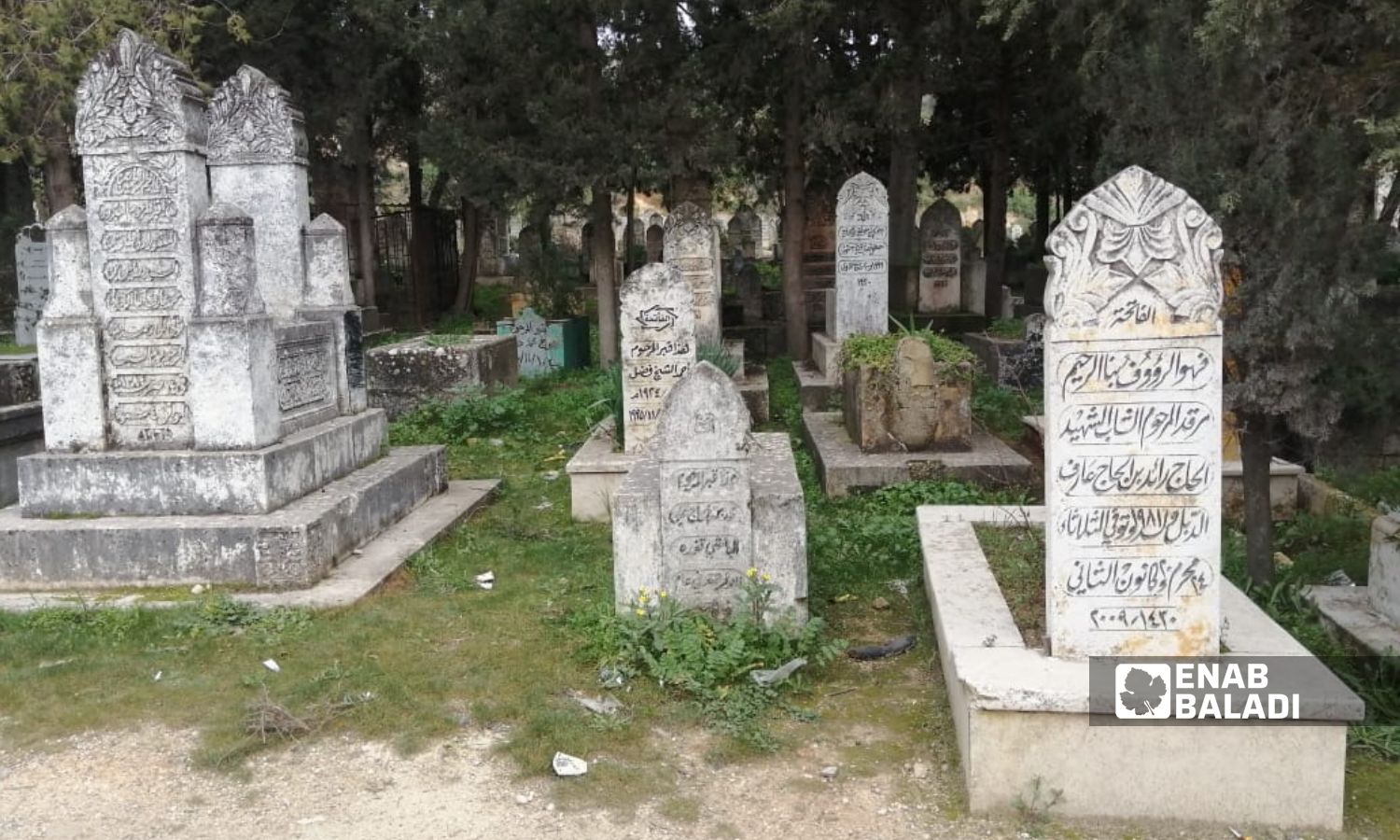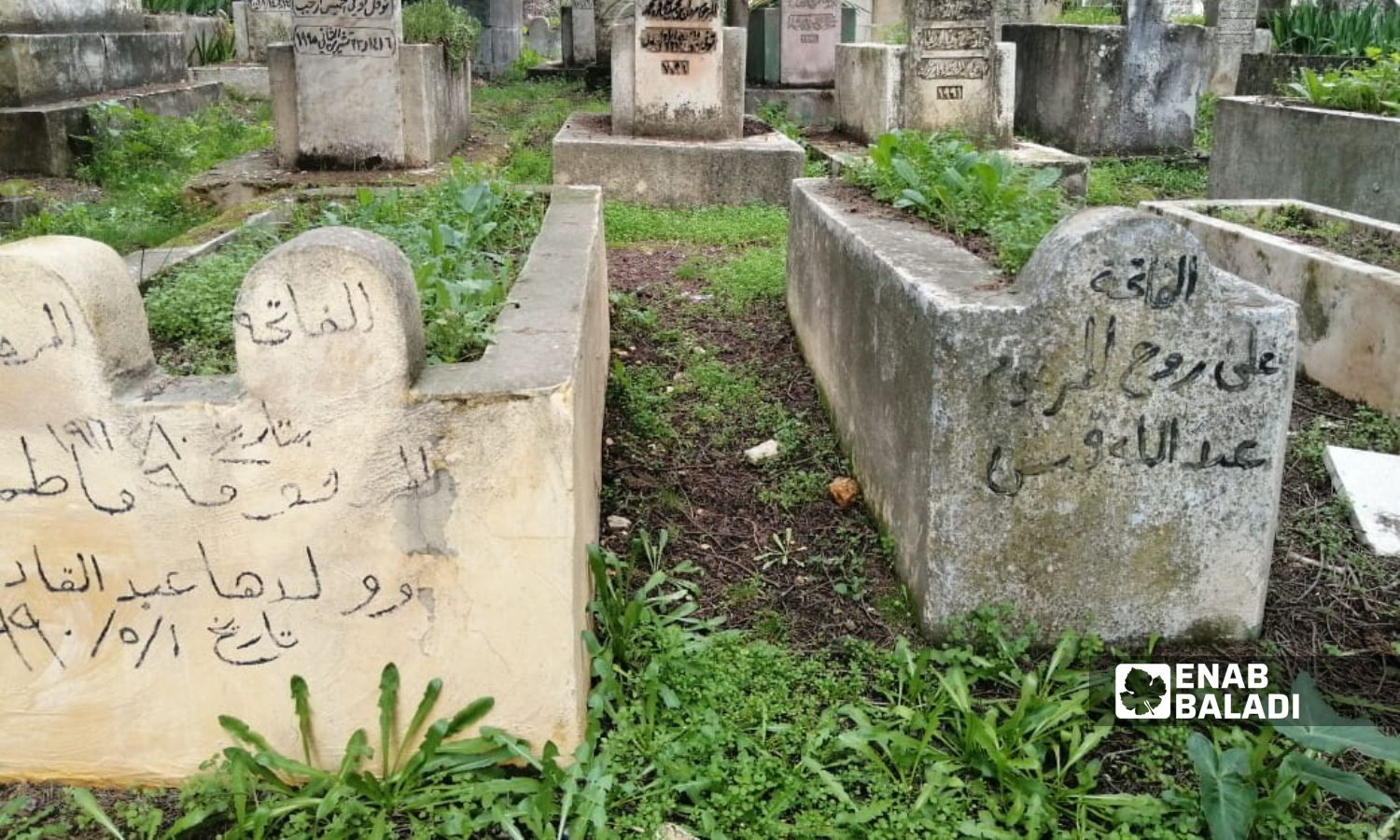



The congregations of the displaced have created a new life in Idlib, which has become “a miniature Syria,” sharing their joys and sorrows and designating special places to bury their dead.
While there are no obstacles for the displaced to bury their dead in the public cemeteries spread across villages and towns, volunteer teams and charitable organizations are active in securing the costs of preparing the burial of the deceased, from washing and shrouding to digging graves.
Most of the displaced people from various areas to northern Syria try to live in nearby settlements, where they form an environment that meets their most basic needs, from schools and mosques to commercial shops (groceries).
Issa Qazah, who is displaced from the city of Saraqeb works within a specialized center for burying the dead supported by donations from “good people,” consisting of two wash-houses in eastern Idlib. The first is located in Sarmin, and the second is on Binnish road, each with a section reserved for women.
The washhouse provides a car to transport the dead to a piece of land donated by an individual and located on the road to the town of Taftanaz, east of Idlib.
Qazah told Enab Baladi that the center was established almost two years ago due to the lack of space in the cemeteries of cities and towns that were flooded by the displaced. He explained that the center undertakes the burial of the dead of the displaced from all regions and provides its services completely free of charge, from transport and shrouding to grave preparation. He pointed out that the land was granted by someone for this purpose.
According to Qazah, the land on which the cemetery was established is not defined by an area, and its owner has endowed it as a donation for the burial of the deceased of the displaced until the return of the families to their homes. The team working with Qazah also takes care of publishing the death announcements of the deceased via WhatsApp groups and notifying their relatives and friends of the time and place of burial and the condolence gathering.

A cemetery in the city of Kafr Takharim, northwest Syria – February 10, 2024 (Enab Baladi/Shams al-Din Matoun)
Ibrahim Muhammad Salim, a member of the Al-Bir Charitable Association in Idlib, told Enab Baladi that the establishment of an office for burying the dead in the city of Idlib requires a license from the Salvation Government operating in the region.
He explained that there are certain procedures that must be followed when choosing the land used for burials, and in coordination with the responsible ministry, it is possible to select common land to become a cemetery, or the association can take responsibility for purchasing a piece of land through fundraising to be far from residential areas and with specifications set by the ministry, according to Salim.
Enab Baladi contacted the Ministry of Religious Endowments in the Salvation Government to find out the procedures for licensing burial offices and cemeteries, but it had not received a response at the time of this report’s preparation.
Salim pointed out that the association, established in 1996 to help the poor in the city of Idlib, provides an office for burying the dead and works on digging graves and transporting and preparing shrouds for all residents of the north without exception, among the displaced and residents.
Salim said that the relatives of the deceased pay the cost of the shroud and its supplies and the workers’ wages, while the piece of land that is dug as a grave is provided free of charge. The association undertakes the burial of martyrs of bombing or disasters like earthquake victims and the poor who cannot afford the burial costs ranging between 50 and 60 US dollars.

A cemetery in the city of Kafr Takharim, northwest Syria – February 10, 2024 (Enab Baladi/Shams al-Din Matoun)
Despite forming communities and their desire to stay close to each other, certain circumstances forced displaced relatives to the north to live apart from each other. Therefore, they constantly communicate through groups on social media platforms, sharing their joys and sorrows and discussing their problems.
As for most burial procedures, the displaced are treated like the locals of the province, with cemeteries open to them, as well as community centers and venues for events.
Mazhar Abar, a representative of the displaced from Daraya in northern Syria, told Enab Baladi that in cases of death, the displaced are treated like the residents of the area they live in. In villages and towns, there is no cost for burial lands, and they can be used in return for securing the excavation costs and grave preparation only.
However, there are areas where no public cemeteries exist, and the price of a grave must be paid. He noted that some displaced communities relied on buying their own lands and turning them into a cemetery for their city’s people, and they do not object to burying the deceased from other villages’ displaced people.
On the other hand, a member of the committee of the displaced from Deir Ezzor in Idlib, Momen Abu Abdullah, said that the displaced bury their dead in the public cemeteries spread in the towns where they live, pointing out that there are no problems in finding a special cemetery.
He mentioned that the grave costs are the same as those paid by the residents, namely securing the shroud, the transport fee, and grave digging. The committees of the displaced also contribute to helping the relatives of the poor deceased in covering these costs.
Groups of the displaced have prepared special places for the sons of their city to bury their dead and hold condolence gatherings, where the well-off help poor families. Additionally, families share the costs of these places, which are designated for the city’s sons and also available to the public.
Journalist Kinana Hindawi, living in Idlib, told Enab Baladi that the displaced, especially those from the countryside of Idlib, had begun to buy their own lands to bury their dead, to maintain their gatherings within specific areas of the north. He noted that either the clan or the large families also prepared lands as private cemeteries and secured the purchasing costs from all members of the family or the village.
He added that sharing sorrows is a phenomenon that unites the people and is known about the Syrians. Therefore, there are no obstacles or difficulties in finding graves. Usually, the cemetery is available to its owners and to strangers, and individuals contribute to preparing the graves for the deceased’s relatives as one of the forms of condolence and solidarity.
if you think the article contain wrong information or you have additional details Send Correction